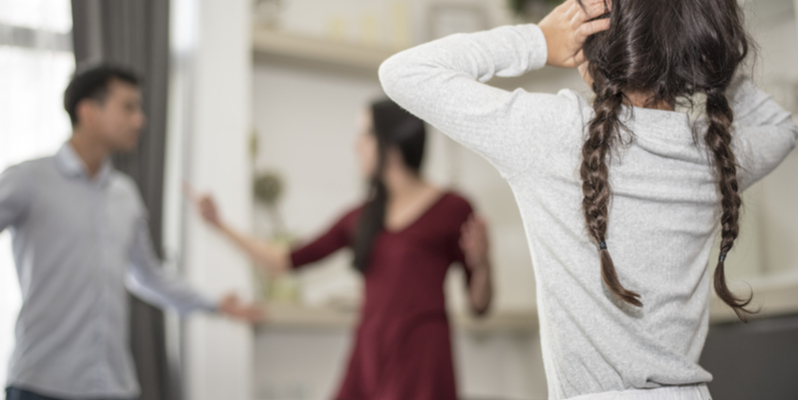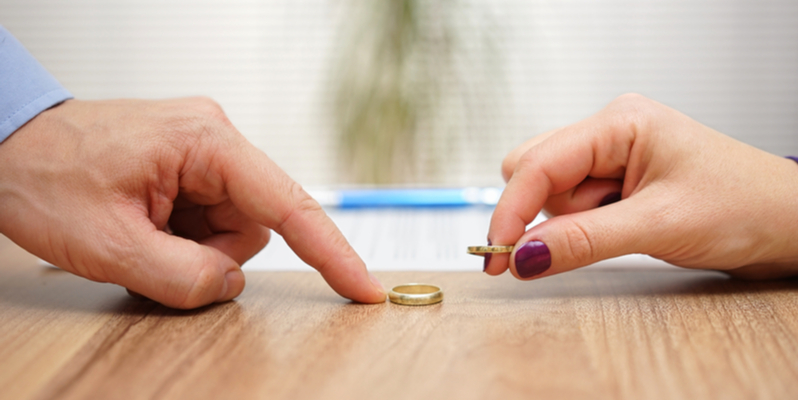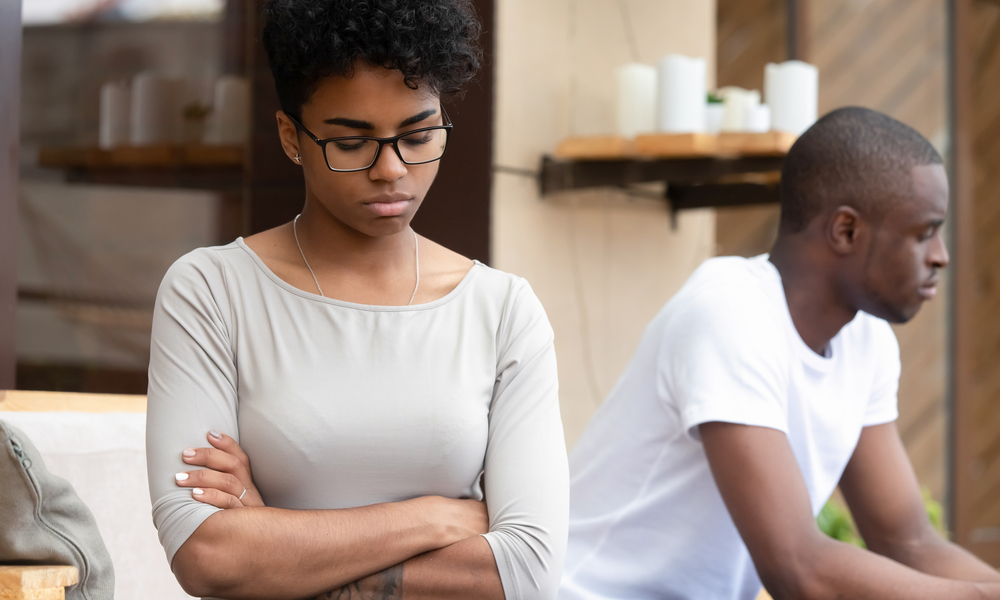COVID-19 has most of the world in lockdown. Aside from managing boredom, and ensuring we have enough snacks and toilet paper, some of us struggle with the emotional toll of this global pandemic. Fear, worry, loneliness, depression, and insecurity are just some of the emotions competing for our attention. Some of us, meantime, may be quarreling with our spouses or partners, though we know that keeping it together for the children is important. Lucky for us, there are tools we can use to ease those tensions: acknowledging the difficulties, using code words for taking a break, and finding much-needed alone time, for each partner, every day.
The good news is that none of us are alone in this corona lockdown. Families all over the world are trapped at home and none of us knows how long the pandemic will last. In addition to the new burden of homeschooling, something we might be ill-equipped to do, and caring for trapped children for days on end, we all have our fears about the virus and our finances. Then there’s the isolation of not being able to leave our homes, which can lead to feelings of loneliness and depression, while the strain on married couples is enormous.
Our children, meanwhile, are watching their parents to see how we are holding up, and looking to us for cues. “Children are deeply dependent on their parents to feel safe and secure in the world,” says Claire Lerner, selected as a Top Social Worker by the International Association of HealthCare Professionals. “They are highly tuned in to their parents’ well being. Think ‘you’re okay, I’m okay.’
“But if parents aren’t okay, and children can clearly see that, it only increases children’s distress and acting-out behaviors, which then further taxes the parenting relationship. A vicious cycle ensues that increases everyone’s stress. So what to do?”

Acknowledge the Difficulties
Lerner says that couples need to confront the issues head on. “Start by acknowledging to each other that this is a very difficult time and agree that in order not to increase your stress further, you will make a plan for how to deal with differences in a way that minimizes the effect on the kids.”

According to Lerner, one way to deal with things is to find a code word you can use to interrupt a conversation that is threatening to boil over into a full-blown quarrel. “Ideally, parents should manage their own emotions in front of the kids and deal with any differences in private, but that is not always possible,” says Lerner. “So, when couples start to go down a negative path with each other, it is helpful to come up with some kind of agreed-upon code word to use to throw a monkey wrench into the dynamic as a cue or reminder to each other that you have agreed you wouldn’t expose the kids to this and that this is a good time for each of you to cool off and take a break.”
While it’s important for couples to acknowledge relationship issues to each other, it’s quite another to reveal your private business to your children. Lerner says the main thing is to reassure children that they aren’t imagining things: that the tension they sense, is real. “It’s important to acknowledge to the kids that this is a very different time in their family. Routines have changed and everyone is trying to figure out how to adapt, including mom and dad (or mom and mom/ dad and dad),” says Lerner.
“If kids are witnessing tension, it is critical that their perceptions are validated and not minimized or they won’t trust their feelings that are real. Explain that sometimes parents lose it just like they do, and that you are working on managing your emotions, too. Explain that while you may argue or are tense with each other—perhaps like they are with their siblings—you are okay and will always be there for them.”
Lockdown: A Gift or Disaster?
Not every couple is suffering during this lockdown. Those with busy careers may have long yearned for a chance to spend more time with a spouse or partner. To such couples, the lockdown may even feel like a blessing in disguise. “Lockdown can either be a gift or a disaster for families. It can be a gift for those couples who previously had let life get in the way of their spending enough time with each other because of work or other commitments. In isolation they can now reconnect,” says Dr. Carole Lieberman, bestselling author of “Lions and Tigers and Terrorists, Oh My!”
“But, for some couples, it can be a disaster because the little things that bothered them about each other, but were tolerable, now flare up when they’re together 24/7. This can send them to the brink of divorce,” says Lieberman, who offers the following 5 tips for couples to decrease the strain on the marriage and to reconnect in a positive way:
- Schedule some alone time for each of you every day. Staying at home doesn’t have to mean getting in each other’s face every minute.
- Choose an area of your home where you each can go for some alone time—such as your favorite room or your favorite spot by a window. You can also take walks alone near your home, if you can keep a social distance from others.
- Look at the coronavirus as a common enemy that you will fight together to keep the whole family healthy by practicing basic wellness habits: hand washing, eating nutritious food, taking vitamin supplements, getting enough sleep and exercise.
- Look at lockdown as a gift of time. Do things together that you always wished you had time to do before, like play board games, dance, do crossword puzzles together, binge-watch a TV show you both like, and so on.
- Talk to each other about fun memories, like trips you went on, and plan fun things to do when the lockdown is over.
COVID-19: Be Mindful of a Child’s State of Mind
Lieberman cautions parents to be mindful of the children and their state of mind, as couples navigate the relationship pitfalls of being on lockdown. “Kids are frightened enough, so it’s important not to frighten them even more with the prospect that mommy and daddy might get divorced.”

For some families, however, the prospect of divorce was already on the table before coronavirus reared its ugly head. “A lot of parents have already decided to divorce, but are continuing to cohabitate for financial reasons. With the increased financial stress and social distancing, this situation could be like the spark to light the smoldering flame,” says Courtney Fields McVey, a social worker who works with couples wending their way through the complexities of divorce.
In this case, a mending of the relationship may not be possible, but parents can still work together to protect their children from learning about grownup issues that are much too much for their little ears. A code word for taking a time out is here even more important, as is finding a way to carve out alone time for each separate parent.

For some, alone time may look like a long, hot, bubble bath, while for others it’s a glass of wine in the privacy of your bedroom with the door closed (and locked), and loud music to drown out the noise of the entire rest of your household. Be prepared to think out of the box as you look for creative ways to score some precious solo time. Because with COVID-19 unleashed in our world, it’s all about finding that new normal.
And it’s not like we have a choice.
Found what you just read useful? Why not consider sending a donation to our Kars4Kids youth and educational programs. Or help us just by sharing!

Dear Varda,
What happens when parents argue if front of the children because one parent disagrees on the way the other parent behaves with the children and wants to stop that immediately (e.g. one parent imposing a child to do an activity like piano practice when the other parent believes it is not the right time because the child may be tired or stressed?). Thank you
The answer is to have a code word that means: “Let’s discuss this out of hearing of the kids.”
But you may have to be flexible. Just because you want something stopped immediately, doesn’t mean the other parent agrees, and that parent also has opinions and rights about how to raise the children. See if you can find a compromise between the two of you. Agree to disagree. Lockdown is an unusual situation and we have to be more flexible and adaptable than ever. Keeping the peace is so important for everyone’s mental health and wellbeing.